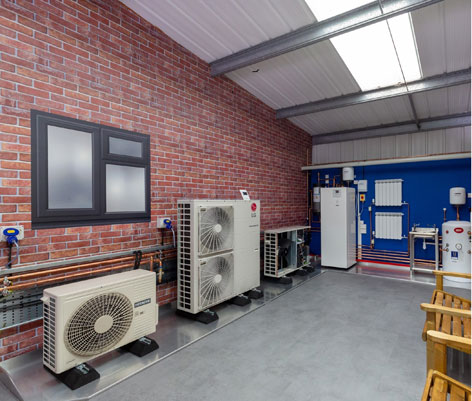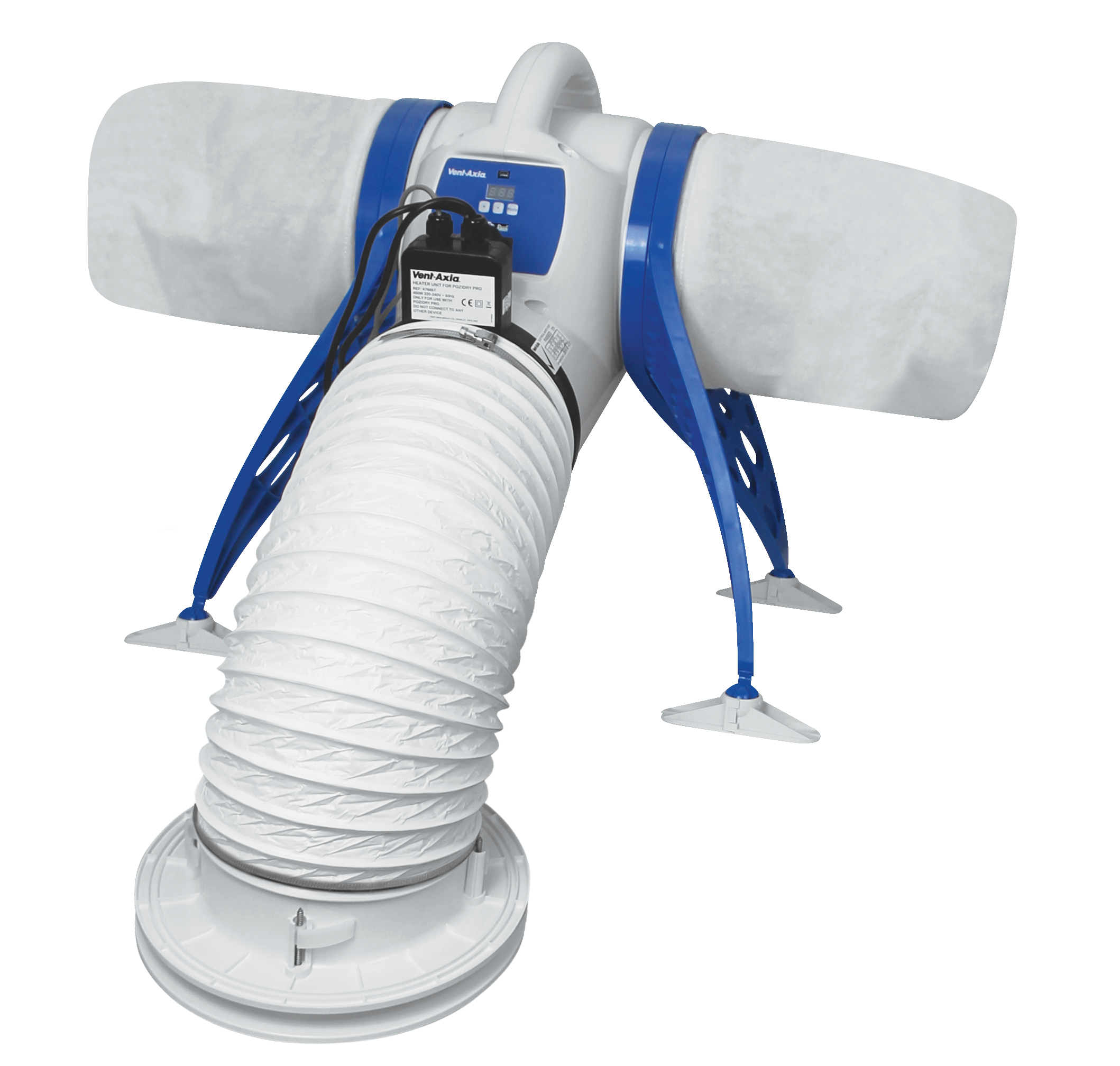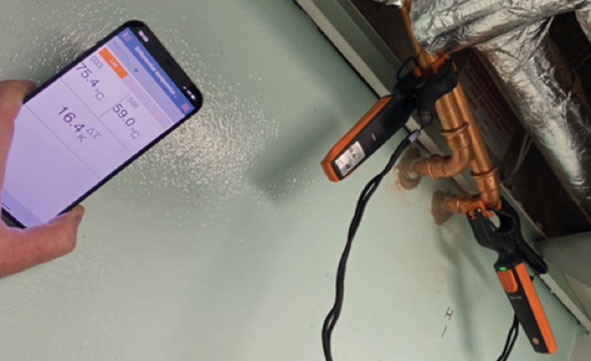Heating and Ventilation
Air source heat pumps...a logical option for social housing

The heat pump revolution is underway in the UK with more and more housebuilders and social housing providers opting for heat pumps rather than the traditional fossil fuelled gas and oil fuelled boilers. The Government has introduced legislation that will see boilers phased out by 2025 in new build properties, but sensibly, many developers are getting ahead of the game and future proofing their new homes and in many cases the heating system upgrades on existing homes as well. The new, easy to install, highly energy efficient air to water heat pumps available now are proving to be hugely popular, with Unitherm already picking up a number of sizeable contracts from social housing providers. And it’s been Unitherm’s ‘All U Need’ approach - full supply, design heat pump package, with a simple to install system and full technical support that is proving popular.
Vent-Axia shares tips to Love your Lungs and Stay Healthy this Clean Air Day

Leading British ventilation manufacturer Vent-Axia is sharing tips on how to love your lungs on Clean Air Day on Thursday 16 June 2022. Clean Air Day is led by environmental charity Global Action Plan and aims to improve public understanding of air pollution, build awareness of how air pollution affects our health and explain the easy actions we can all take to tackle air pollution, helping protect the environment and our health.
The theme for Clean Air Day this year is that ‘air pollution dirties every organ in your body’. Vent-Axia is therefore reflecting this by sharing tips on how vital it is to love your lungs to stay healthy and aims to raise the issue of how indoor air pollution, as well as outdoor air pollution, can affect our health. Indoor air pollution can affect lung health and is linked to increased risk of pneumonia, COPD and lung cancer. If an asthma sufferer has an allergic reaction to a pollutant in the air, this can also make asthma symptoms worse.
ECO4 is another step to ending gas dominance

by Russell Dean, Head of the Residential Product Group at Mitsubishi Electric
The Government recently brought forward an Energy Security Bill as part of the Queen’s Speech, which sets out the policies and the proposed legislative programme for the new Parliamentary session.
Although the news was full of the fact that this was the first time the Queen had been unable to deliver the speech since 1963, with Prince Charles stepping in to deliver the address in place of his mother, there was another important omission that hasn’t yet gained any coverage.
The Energy Security Bill is designed to deliver the transition to cheaper, cleaner, and more secure energy and will deliver the Government’s commitments in the British Energy Security Strategy and the Ten Point Plan for a Green Industrial Revolution to build a more secure, homegrown energy system that is cleaner and more affordable.
Although the bill focuses on new proposed legislation, there was no mention of how this builds on existing plans, such as the recently published ECO4 initiative, which is the fourth and final phase of the Government’s Energy Company Obligation (ECO).
- Read more about ECO4 is another step to ending gas dominance
- Log in to post comments
Heat Networks: Acceptance testing important to the performance of the system

The UK Government has identified that heat networks have an important part to play in the provision of low carbon heating. This is supported by government grant schemes like the Heat Network Delivery Unit (HNDU), the Heat Network Efficiency Scheme (HNES) and the Green Heat Network Fund (GHNF). There is also a separate scheme in Scotland providing £300m of funding for heat networks.
Creating healthy homes with a Property MOT®
As we drive towards reducing our carbon footprint, the inference to insulate Britain is a topical encounter. However, it should be understood how this status could be met with such a myriad of dwelling periods and styles throughout the United Kingdom.
Similar constructions built in opposing ends of the country can and do, behave differently due to their geographical location and indeed, their orientation. This therefore makes the process of insulating homes a more complex issue such that, without due understanding and individual assessments of each dwelling, we will have to be mindful of Ventilating Britain.
- Read more about Creating healthy homes with a Property MOT®
- Log in to post comments
Social Housing Building Regulations Webinar to set out changes to ventilation in existing homes

Leading ventilation manufacturer Vent-Axia is hosting a webinar aimed at the social housing sector on the recently launched Building Regulations. ‘Domestic Retrofit Legislation and Guidance for Ventilation’, will update delegates on the recent changes to the legislation and explain how these changes will affect ventilation in domestic retrofit, especially when adding energy efficiency measures to existing housing stock.
Copyright © 2026. All rights reserved.
Designed By Euromedia Associates Ltd
















